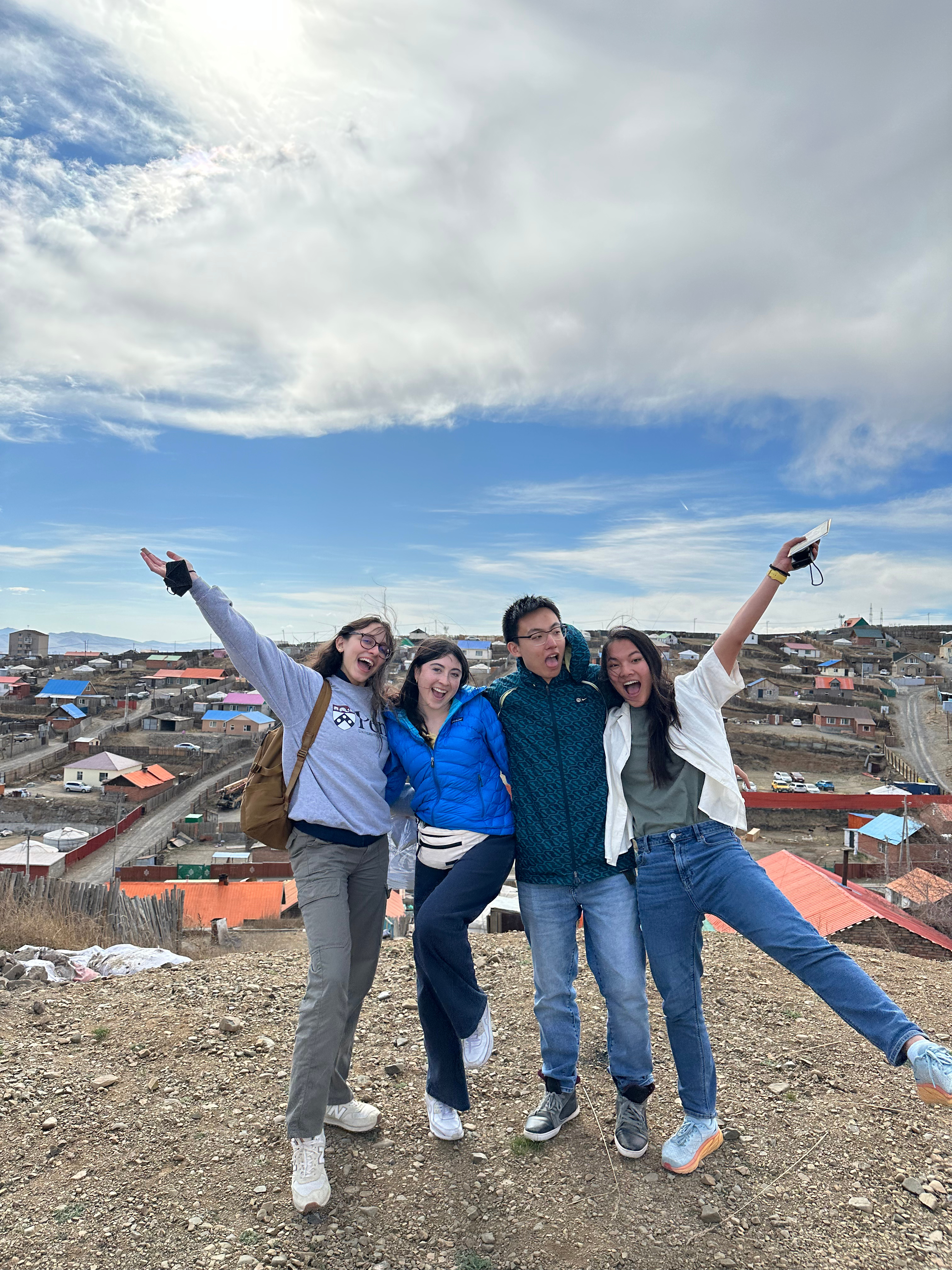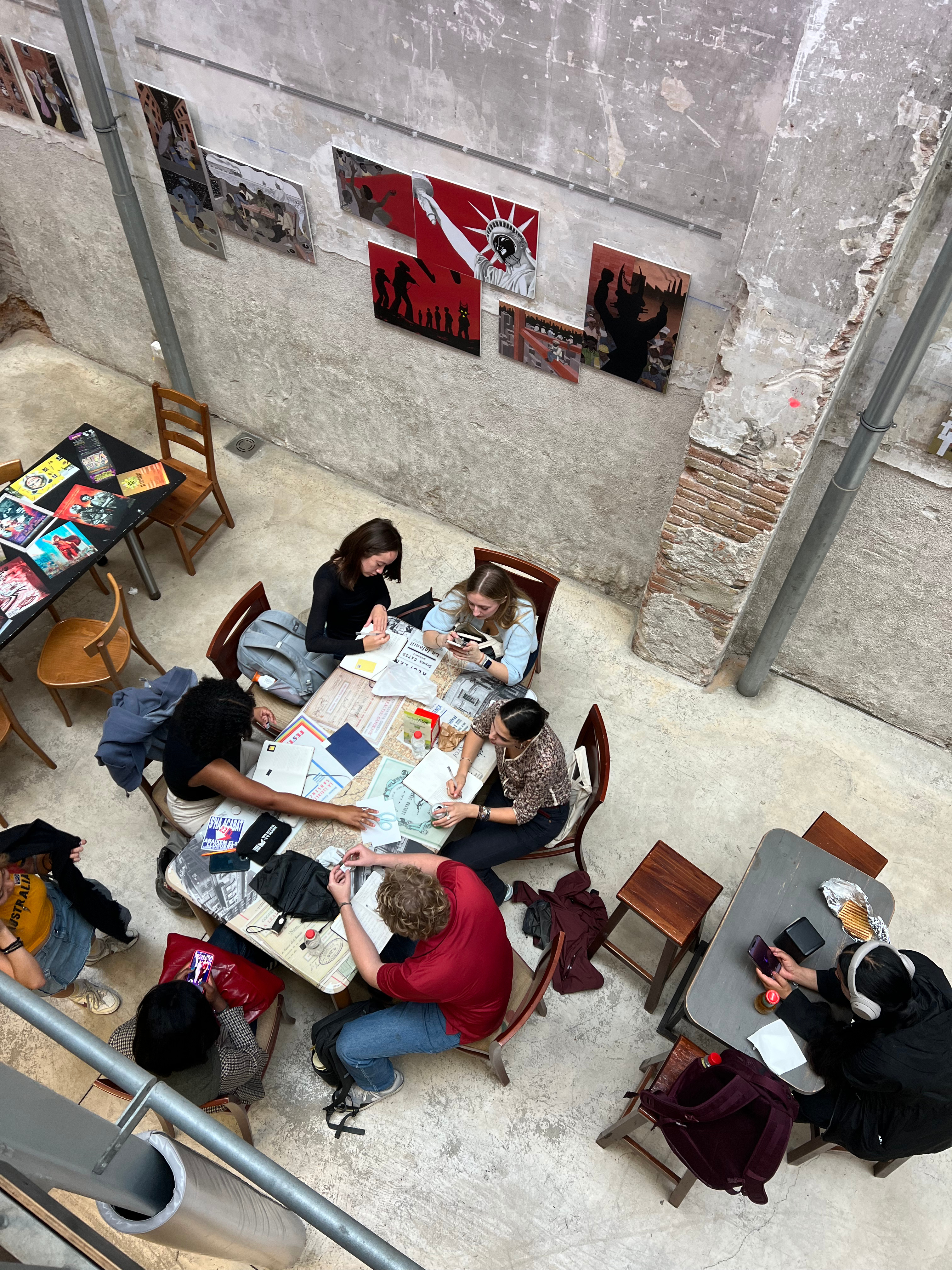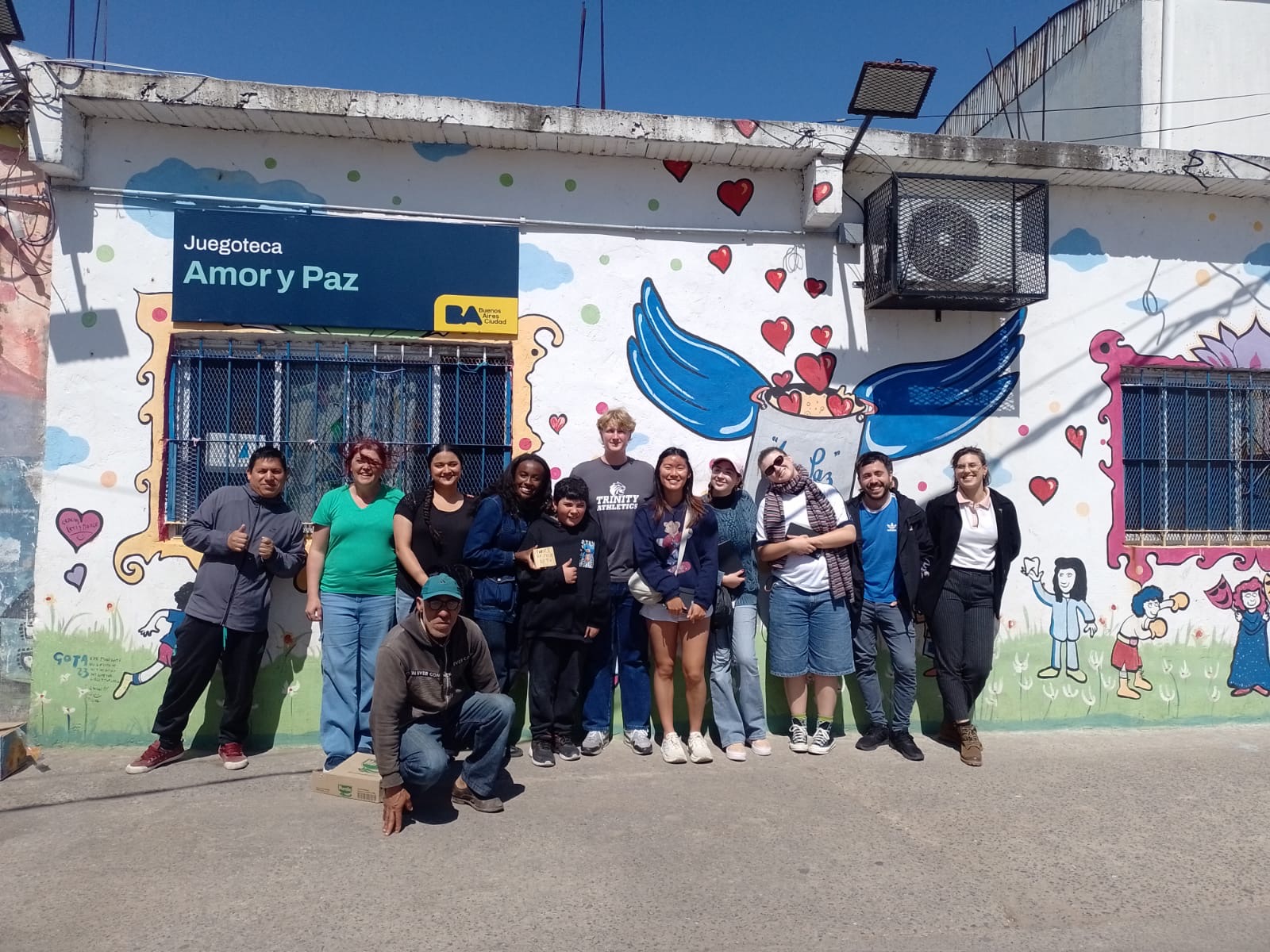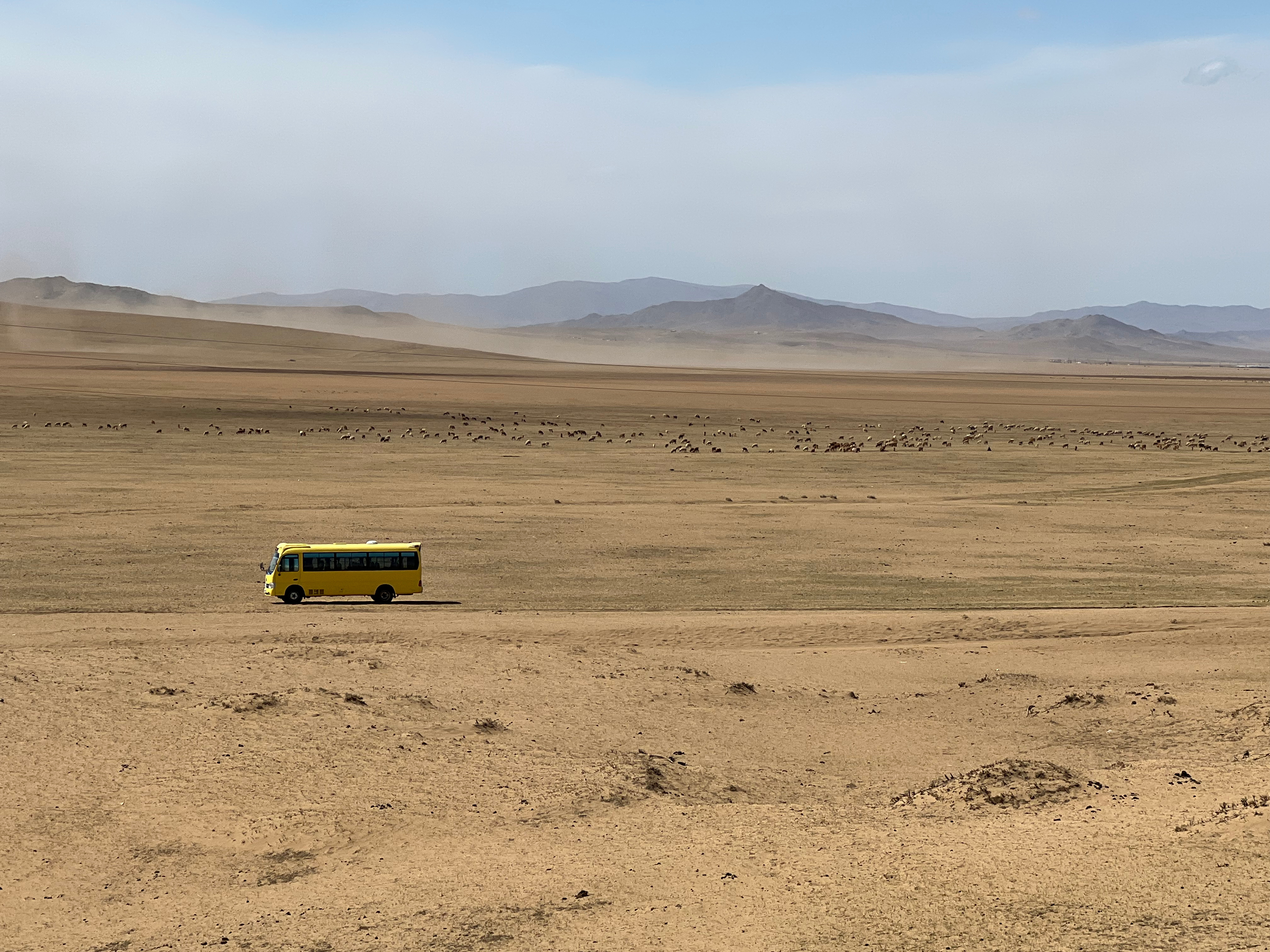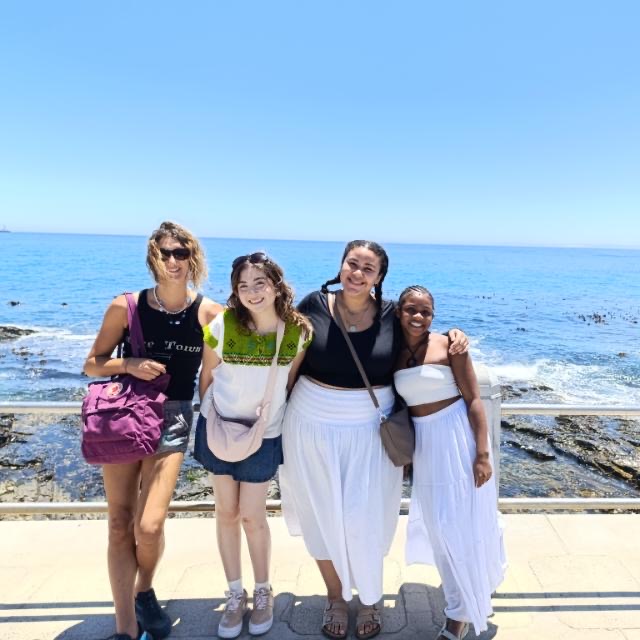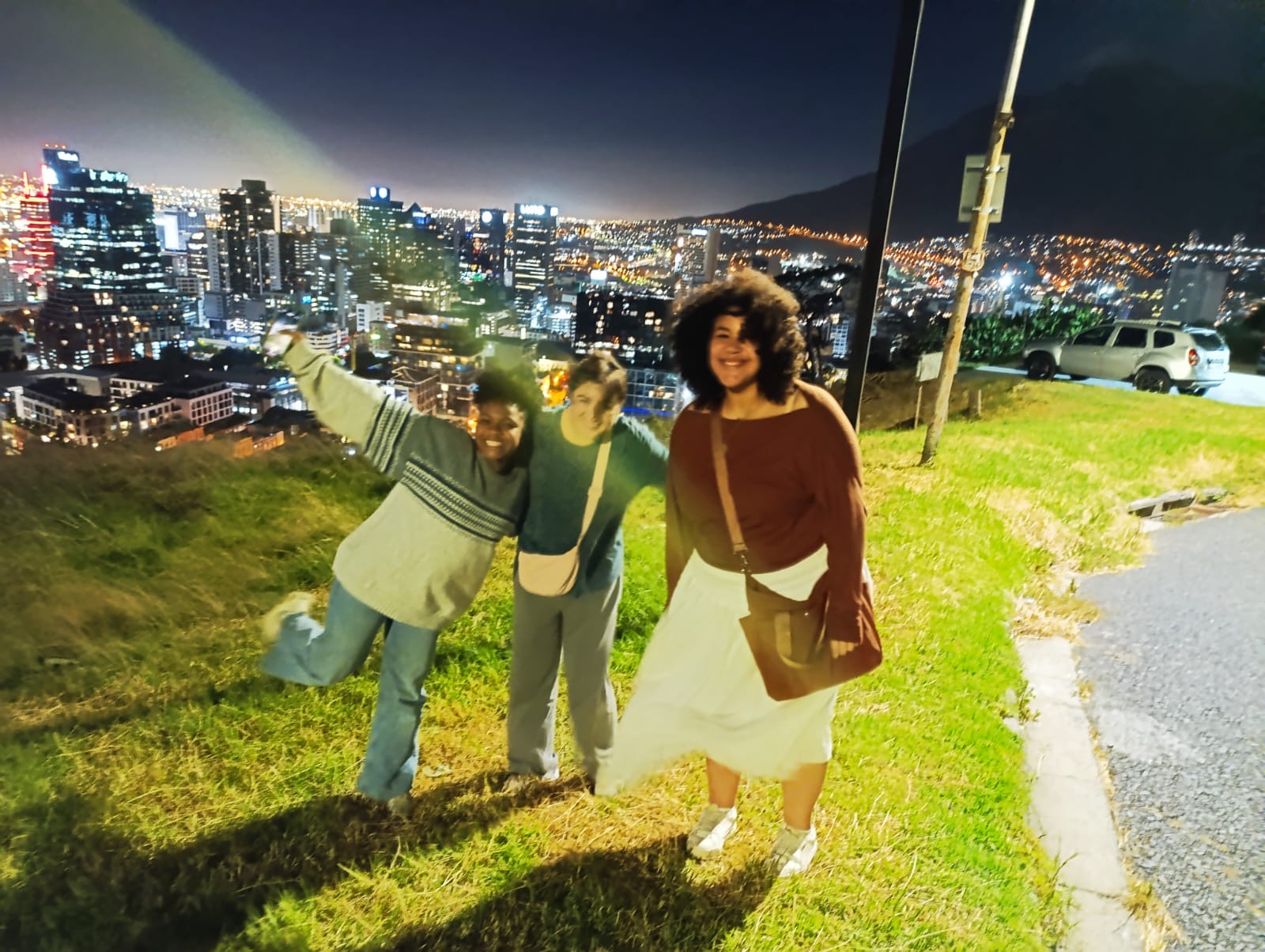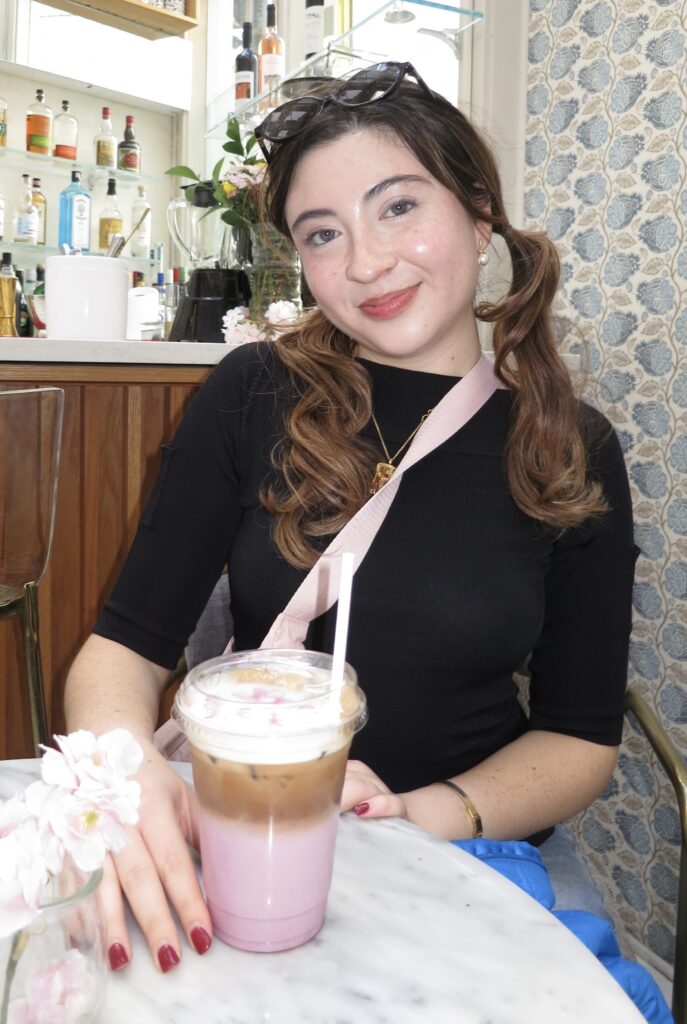
Natalie Vasquez
CAS ’26
Political Science and Urban Studies
SA: IHP Cities in the 21st Century
PGS: Communicating Change in Mongolia
PGS: Compassionate Leadership “The Power of Love, Service, and Inner Work”
Contact
Ask Me About…
Studying abroad is undeniably life-changing, but it also brings moments that can be difficult to hear about or experience firsthand. I would like to share my answer to the question: “What is a situation that was emotionally taxing, yet ultimately changed me?”
When I was in Cape Town, I witnessed the enduring effects of apartheid, corruption, and systemic discrimination. My host parents were Cape Malays, descendants of people brought as slaves to the Cape of Good Hope by the Dutch East India Company.
Hearing their stories made those systemic issues feel immediate and personal. My host mother shared her experience of being displaced from District Six, a once-vibrant, diverse community declared a “white area” and demolished. The next day, my host father drove us to where District Six once stood, now just an empty field with grass swaying in the wind.
The visit was deeply emotional, and processing that kind of pain was difficult. Wanting to honor her story, I collaborated with my research group to dedicate part of our “Memories and Memorials” presentation to District Six, my host mother’s experience, and the recipe book former residents created to preserve their culture. I even cooked a dish from the book, recognizing how food became their peaceful act of resilience.
While the gesture felt meaningful, it also felt insufficient. The experience left me wanting to listen more deeply, learn more fully, and advocate more powerfully for communities facing injustice.
My Experience Abroad
My experiences abroad have given me a deep sense of purpose and a drive to advocate for equity and inclusivity, especially in making urban environments safer and more supportive for women, minorities, and other marginalized groups. Listening to grandmothers in Buenos Aires who have spent decades searching for their missing grandchildren, and learning about the reality of sexual assault in Cape Town townships, brought into focus how race, ethnicity, and gender shape people’s daily lives. This understanding, shaped further by my academic work and my lived experience as a Latina, informs how I approach discussions, research, and community engagement.
The PGS course on Compassionate Leadership and the chance to learn from leaders like Jayeshbhai Patel, who bring Gandhi’s teachings into modern social challenges, would strengthen my ability to bridge theory and practice. I am especially drawn to the course’s emphasis on empathy, not just as a feeling but as an active skill for listening, understanding, and building trust. This connects directly to my Political Science studies, where I have explored how policies and governance are most effective when grounded in the perspective of those they serve.
I want to bring these lessons back to the communities I care about, whether through the Peace Corps or by working with under-served Latino populations in the Coachella Valley. My next step is to apply for a master’s program abroad, a path made possible by Penn’s support as a first-generation, low-income student. I now carry the confidence to learn away from home and work toward a lifelong commitment to helping others.
Other Highlights
At the end of my freshman year, I traveled to Mongolia through a Penn Global Seminar and was surprised to find pieces of home in an unfamiliar place. Mongolian khuushuur, fried dough pockets filled with meat, reminded me instantly of the Mexican empanadas I grew up eating, not just in taste but in the way they are shared and celebrated. Beyond food, conversations with elders challenged me to step outside a Western mindset, especially when they spoke fondly of life under the former socialist regime. That trip taught me to look for common threads across cultures, listen to local perspectives, and be mindful of my role as an outsider.
In Buenos Aires, Barcelona, and Cape Town, I met people who work tirelessly to create safer and more equitable spaces. Walking tours through each city allowed me to pause, listen, and imagine daily life through the eyes of residents. I saw how leadership means not only reckoning with past injustices but also building a future rooted in compassion and opportunity.
One of the most rewarding parts of both PGS and the Study Abroad Program was the community we built as a cohort. In IHP Cities in the 21st Century, my cohort became my support system as we navigated new cities together. Those friendships carried beyond the semester, and I reconnected with some during Penn in Washington while visiting others at Brown University. These connections remind me that shared experiences can create lasting bonds, no matter the distance.
